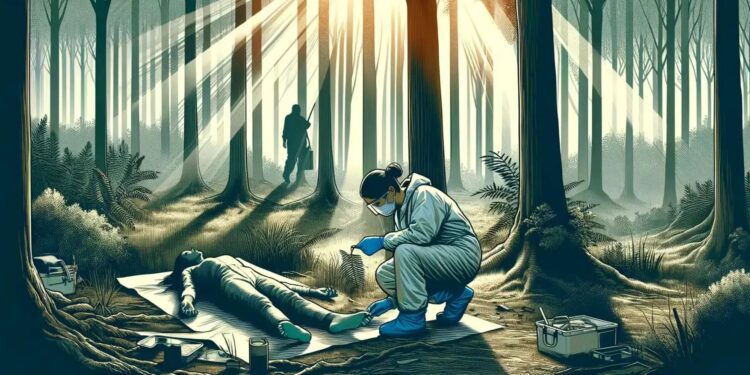For some, death has (almost) no secrets. This is particularly the case for those who work on corpse farms, where the study of body decomposition is used in the service of medicine and criminal science.
Sometimes, theory is no longer enough and, to advance science, the best way is to experiment. The observation applies to many fields… including that of forensic medicine. This is why, since 1980, nine “ body farms » have flourished around the world: seven in the United States, one in Australia and one in the Netherlands.
Does the brain really lose 21 grams of soul at death? Answer in Science or Fiction, with Melissa Lepoureau. © Futura
THE ” body farms » – literally “body farms” in English – welcome very special residents. Here, no cowscows or pigs, but human corpses, studied by farmers in white coats eager to advance medicine… and criminal sciences. Because without them, investigations would be impossible, and there would be many more murderers on the loose!
Make the dead speak by observing their environment
In these strange open-air centers, the bodies donated to science decompose in various ecosystemsecosystems recreated especially for them: who in a house built for the occasion, who on a forest floor, in an aquatic environment, in a trunk of carcaror even under a slab of concreteconcreteetc.
All these environments are unique in that they are often favored by criminals in order to deposit bodies there discreetly. These farms are therefore not cabinets of curiosities for scientists who love the morbid, but are on the contrary very useful.
Factors such as temperature, humidity, exposure to sunsun, the type of soil and their influence on the decomposition process. We also examine the insectsinsects scavengersscavengers : flies, beetlesbeetlesworms and other organisms are fond of flesh.
The result: more precise dating of death… and better preservation of bodies
Some farms spare no expense and integrate advanced imaging and monitoring technologies to monitor the decomposition process in real time. This may include using infrared cameras or drones to obtain more accurate data.
All this data collected in the “ body farms » contribute to the development of new forensic technologies which make it possible to improve methods of dating death and to develop more precise tools for the analysis of crime scenes. They also make it possible to improve body preservation techniques, which can be very useful during criminal investigations requiring numerous medical examinations of the victims involved.
You may not have known it, but in certain environments the body can still be mobilemobile ! This is due to insects which, when very numerous, can move parts of the remains, but also to the presence of rain or dead leaves.
For all these reasons, these farms are places of study that have become essential for doctors, researchers, entomologists, forensic technicians and students of forensic medicine. Places governed by very strict rules so that the bodies which all belonged to volunteers with knowledge of these centers are studied in compliance with their integrityintegrity. Notice to amateurs.



